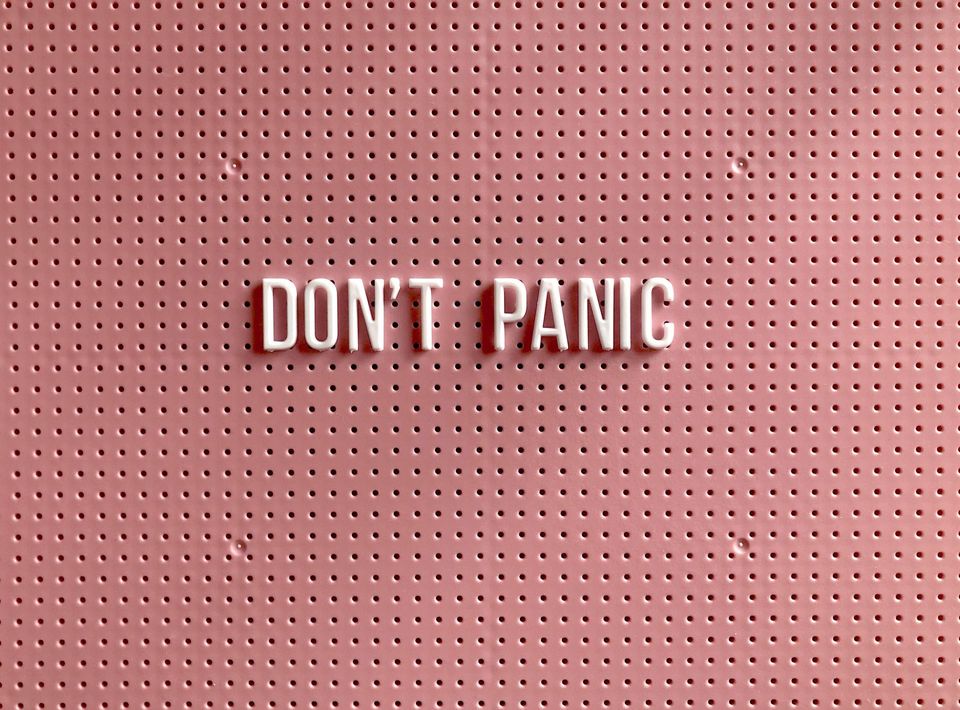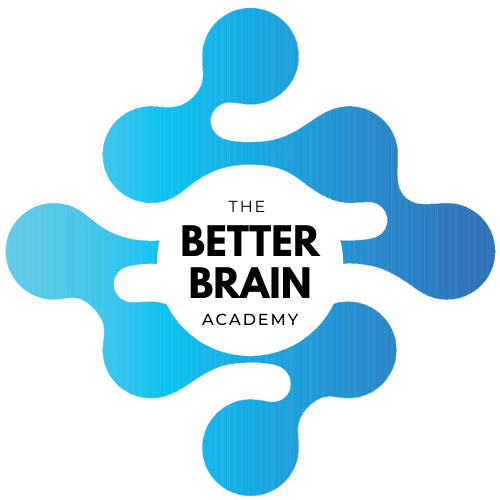4 Brain Hacks to Combat Anxiety
By The Better Brain Academy

Argh...We've all experienced it. The sweaty palms, the butterflies in the stomach. So how then do we deal with anxiety in those tense moments?
1. Determine the type of anxiety that you have.
People with pure anxiety tend to feel tense, nervous and anxious, often making them feel uncomfortable in their own skin and predict the worst. Physical symptoms such as nail biting, headaches, muscle tension, and a racing heart can be triggered due to low levels of GABA (a neurotransmitter that reduces feelings of fear and anxiety) and high activity in the basal ganglia (the area of the brain that controls the bodies idle).
People with pure anxiety tend to respond to deep relaxation exercises that calm their brains like yoga, tai chi, and meditation.
A study published by the Journal of Alternative and Complementary Medicine found that a 60-minute yoga session increased GABA by 27%. Supplements such as L-theanine, GABA, magnesium, and ashwagandha have also been found to improve attention, reduce stress and promote relaxation.
For those individuals that experience both mixed anxiety and depression (which run together 75% of the time), usually, both GABA and dopamine (neurotransmitters that play an important role in anxiety modulation) are low in the brain.
To naturally increase dopamine, intense exercise alternated with deep relaxation exercises (to naturally increase GABA), are helpful in reducing symptoms. As well, eating an anti-inflammatory diet (one that is high in healthy fats, lean proteins and unrefined carbohydrates) helps neurotransmitters balance one’s mood and stress.
2. Reduce/ Avoid Sugary and Processed Foods
Research shows that eating foods that have a high glycemic index can contribute to anxiety and depression. When blood sugar is spiked (from eating that delicious donut!), it can cause your mood to swing and alter your energy levels, making it more challenging to get your anxiety under control.
To improve your anxiety symptoms, avoid foods that hurt your brain and body, including sweetened drinks, fast foods, refined grains (white bread and pasta), processed meats, baked goods (like cookies and donuts) and fried foods. Not only do these foods increase inflammation in your body, but they also weaken your brain's ability to respond to stress.
Instead, eat a clean and well-balanced diet that includes foods such as omega-3 foods (like wild-caught fish), magnesium-rich foods (such as avocados, almonds, spinach, and dark chocolate) and foods rich in vitamin B, which can improve anxiety symptoms.
3. Talk to Yourself in the 3rd Person
Studies conducted at the Clinical Psychology Lab at Michigan State University found that when people referred to themselves in the third person, the part of their brain involved in emotional regulation reduced their stress within 1 second.
Because you feel the way you think, when you talk to yourself like you would speak to and encourage a good friend, you are putting distance between your thoughts and emotions.
For example, instead of saying to yourself “If I screw up, everyone is going to know I am a fraud at work,” you can alter your inner dialogue by saying, “Janice, you are prepared and know what you are doing. Just go out and do your best.” By learning how to change and challenge your negative thought patterns, you can better handle stressful situations and reduce your anxiety quickly.
4. Practice Gratitude Daily
Research suggests that practicing gratitude calms the deep limbic system (the emotional center of the brain that’s responsible for managing your mood and attitude) and activates the hypothalamus which regulates metabolism, sleep, and body temperature.
When these regions of the brain are consistently activated, new patterns of neurons fire together to create new thinking and feeling pathways. Over time, the practice of gratitude helps train the brain to fire in a new pattern, creating long-lasting positive changes in the neurological structure of the brain.
Share
Tweet
Share
Mail
Copyright 2023
All Rights Reserved
The Better Brain Academy
The Better Brain Academy
Kelowna, BC Canada
250-575-7741
THE FINE PRINT
While there may be information on The Better Brain Academy website relating to certain conditions, should a medical condition exist, promptly see your own physician or health provider. The Better Brain Academy does not offer medical diagnosis. Information presented is for educational purposes only and is not intended to provide or replace medical advice. The Better Brain Academy makes no claims that it can cure any conditions, including any conditions referenced on its website or in print materials, including ADHD, anxiety, depression, traumatic brain injury, post-traumatic stress disorder, stress, sleep disorders, Alzheimer’s and dementia. If you take prescription medications for any of these conditions, you should consult with your physician before discontinuing use of such medications.
